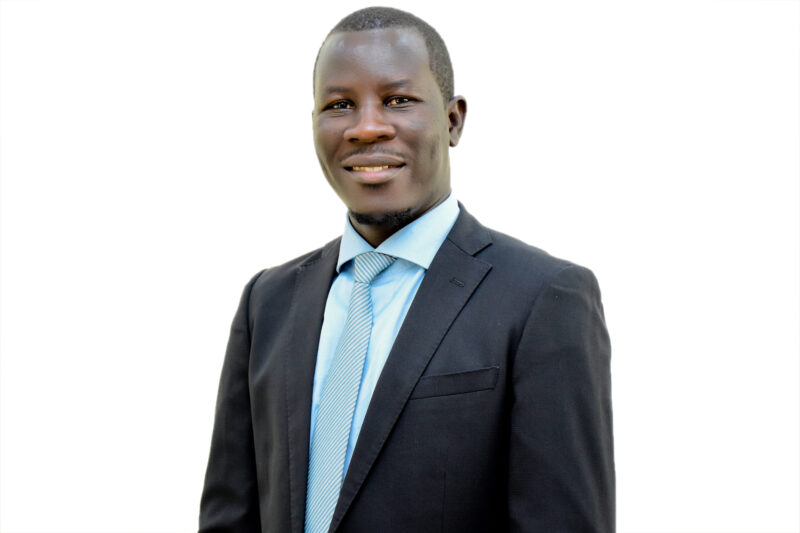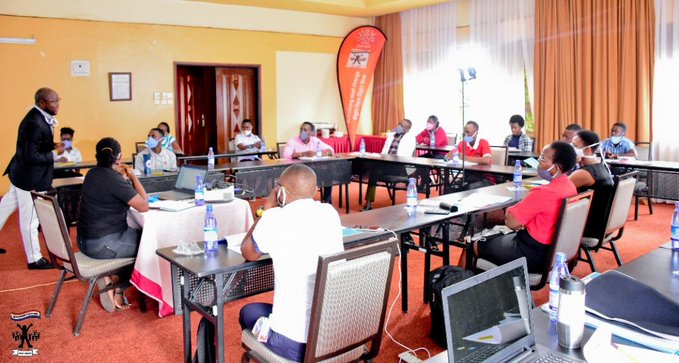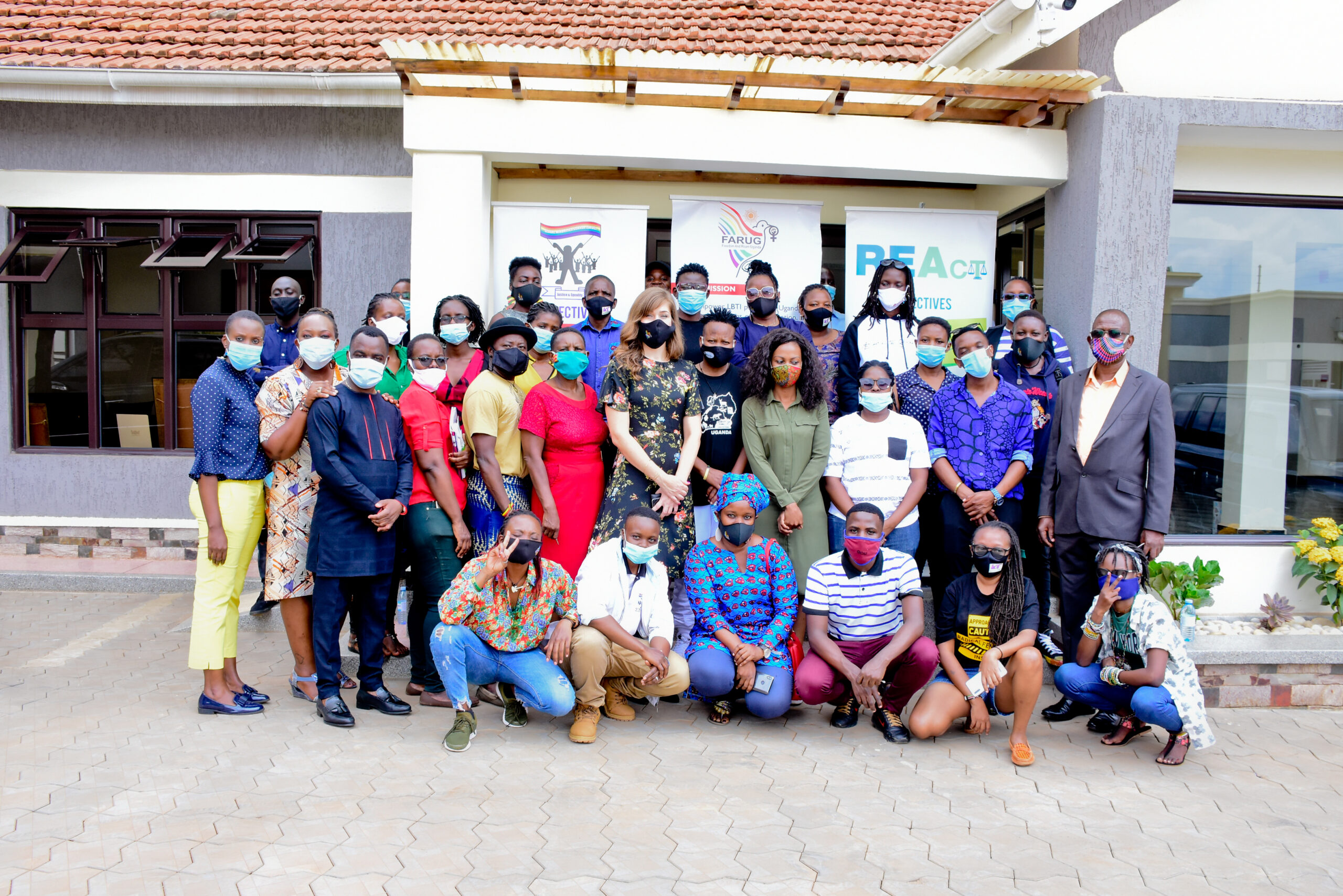Background;
Sexual Minorities Uganda (SMUG) through the REAct Project under Safety and Protection Department working with Research & Documentation and Linking Learning Department runs the KNOW YOUR RIGHTS program.
The Know your Rights Program is an initiative that started about three-four years ago against the need and background to equip LGBTI organization leaders and community members with laws and policies necessary to inform advocacies at respective levels. Whilst activism is a continues process, it’s important to take time to remind ourselves on the laws, policies, Resolutions, Treaties, Conventions etc. so as to refresh our arguments during our respective advocacy engagements.
Without doubt, Covid-19 pandemic has presented a precarious situation that all our operational norms were severely affected. To that note, our communities look up to us for support, sense of direction and guidance in times of violations and abuse of human rights.
Legislative framework;
The Know Your Rights during Covid-19 Pandemic crisis will be premised on the following;
- The Constitution of the Republic of Uganda, 1995 (As amended)
- Resolution 275 of the African Commission on People and Human rights
The Constitution of the Republic of Uganda, 1995 as amended;
The Constitution is the Supreme law of Uganda and all the authorities I Uganda are derived from the Constitution as provided under Article 2. To this end, all authorities are deriving their powers from the Constitution and should be exercised in consonance with the Constitution. Where any person acts in his or her position but overrides the provisions of the Constitution acts ultra-vires.
The Chapter Four of the Constitution of the Republic of Uganda provides for protection and promotion of Fundamental and other human rights and freedoms as explained below;
![]() Fundamental and other human rights and freedoms – Article 20;
Fundamental and other human rights and freedoms – Article 20;
Fundamental rights and freedoms of individuals are inherent and not granted by the state, these rights should be upheld and promoted by all organs of the state and persons.
![]() Equality and Freedom from discrimination- Article 21;
Equality and Freedom from discrimination- Article 21;
All persons are equal before and under the law in all spheres of political, economic, social and cultural life in every other respect and shall enjoy equal protection of the law. A person shall not be discriminated against on the ground of sex, race, colour, ethnic origin, tribe, birth, creed or religion, social or economic standing, political opinion or disability.
“Discriminate” means to give different treatment to different persons attribute only or mainly to their respective descriptions by sex, race, colour, ethnic origin, tribe etc.
![]() Protection of right to life- Article 22;
Protection of right to life- Article 22;
No person shall be deprived of life intentionally,
Except in execution of a sentence passed in a fair trial by a court of competent jurisdiction and sentence confirmed by the highest appellate Court.
Protection of personal Liberty-Article 23;
No person shall be deprived of personal liberty,
Except;
I. Execution of sentence or order of court of competent jurisdiction,
II. Order imposed by the law.
- Spread of infectious diseases,
- Restriction of a person of unsound mind or addicted to drug or alcohol for purposes of treatment, Etc.
Any person arrested, restricted or detained should be detained in a place authorized by the law and should; be informed immediately in a language that the person understands, of the reasons of arrest, restriction or detention, and right to lawyer of his or her choice.
Next of kin, lawyer, medical person/doctor, etc
![]() Respect of human dignity and protection from inhuman treatment- Article 24
Respect of human dignity and protection from inhuman treatment- Article 24
No person shall be subjected to any form of torture or cruel, inhuman or degrading treatment or punishment.
Protection from slavery, servitude and forced labour-Article 25 No person shall be held in slavery or servitude, and or forced labour.
![]() Protection from deprivation of property; Article 26
Protection from deprivation of property; Article 26
Every person has a right town property either individually or in association with others.
No person shall be compulsorily deprived of property or any other interests in or right over property of any description.
![]() Right to privacy of person, home and other property – Article 27
Right to privacy of person, home and other property – Article 27
No person shall be subjected to unlawful search of the person, home or other property of the person or unlawful entry by others of the premises of that person
No person shall be subjected to interference with the privacy of the person’s home, correspondence, communication or other property.
![]() Right to fair Hearing – Article 28
Right to fair Hearing – Article 28
In the determination of civil rights and obligations of any criminal charge, a person shall be entitled to a fair, speedy and public hearing before an independent and impartial court or tribunal established by law.
Every person who is charged with criminal offence shall be presumed innocent until proved guilty or until person has pleaded guilty, be informed of the nature of the offence, be given adequate time and facilities for the preparation of his/her defence, be permitted to appear before the court in person or at the persons own expense a lawyer of his or choice, be afforded an interpreter, and be afforded facilities to examine witnesses and obtain attendance of other witnesses before the court.
No person shall be convicted of a criminal offence unless the offence is defined and penalty for it is prescribed by the law. Except for contempt of court.
![]() Protection of freedom of conscience, expression, movement, religion assembly and Association Article 29
Protection of freedom of conscience, expression, movement, religion assembly and Association Article 29
Every person has a right to freedom of speech and expression which shall include freedom of the press and the media.
Freedom of association which shall include the freedom to form and join associations or unions including trade unions and political and other civic organizations.
![]() Economic rights – Article 40
Economic rights – Article 40
Right of persons to work under satisfactory, safe and healthy conditions. Right to ensure equal payment for equal work without discrimination.
![]() Prohibition of derogation from particular human rights and freedoms- Article 44
Prohibition of derogation from particular human rights and freedoms- Article 44
There shall be no derogation from the enjoyment of the following rights and freedoms;
- Freedom from torture and cruel and inhuman or degrading treatment or punishment
- Freedom from slavery or servitude
- The right to fair hearing
- The right to an order of habeas corpus.
Resolution 275 – African Commission of Human and Peoples Rights. Res.275/2014
275 Resolution on Protection against Violence and other Human Rights Violations against Persons on the basis of their real or imputed Sexual Orientation or Gender Identity
The African Commission on Human and Peoples’ Rights (the African Commission), meeting at its 55th Ordinary Session held in Luanda, Angola, from 28 April to 12 May 2014:
Under its Preamble, had the following;
Recalling that Article 2 of the African Charter on Human and Peoples’ Rights (the African Charter) prohibits discrimination of the individual on the basis of distinctions of any kind such as race, ethnic group, colour, sex, language, religion, political or any other opinion, national and social origin, fortune, birth or any status;
Further recalling that Article 3 of the African Charter entitles every individual to equal protection of the law;
Noting that Articles 4 and 5 of the African Charter entitle every individual to respect of their life and the integrity of their person, and prohibit torture and other cruel, inhuman and degrading treatment or punishment;
Alarmed that acts of violence, discrimination and other human rights violations continue to be committed on individuals in many parts of Africa because of their actual or imputed sexual orientation or gender identity;
Noting that such violence includes ‘corrective’ rape, physical assaults, torture, murder, arbitrary arrests, detentions, extra-judicial killings and executions, forced disappearances, extortion and blackmail; Further alarmed at the incidence of violence and human rights violations and abuses by State and nonState actors targeting human rights defenders and civil society organisations working on issues of sexual orientation or gender identity in Africa;
Deeply disturbed by the failure of law enforcement agencies to diligently investigate and prosecute perpetrators of violence and other human rights violations targeting persons on the basis of their imputed or real sexual orientation or gender identity;
- Condemns the increasing incidence of violence and other human rights violations, including murder, rape, assault, arbitrary imprisonment and other forms of persecution of persons on the basis of their imputed or real sexual orientation or gender identity;
- Specifically condemns the situation of systematic attacks by State and non-state actors against persons on the basis of their imputed or real sexual orientation or gender identity;
- Calls on State Parties to ensure that human rights defenders work in an enabling environment that is free of stigma, reprisals or criminal prosecution as a result of their human rights protection activities, including the rights of sexual minorities; and
- Strongly urges States to end all acts of violence and abuse, whether committed by State or nonstate actors, including by enacting and effectively applying appropriate laws prohibiting and punishing all forms of violence including those targeting persons on the basis of their imputed or real sexual orientation or gender identities, ensuring proper investigation and diligent prosecution of perpetrators, and establishing judicial procedures responsive to the needs of victims.
The Resolution 275 provides for important pointers for activists to hold accountable State actors who violate and abuse rights of persons based on their real and imputed sexual orientation and gender identity with impunity. The resolution reiterates the provisions of The Constitution of the Republic of Uganda, especially the Bill of Rights under Chapter Four of the Constitution on fundamental and other human rights, equality and freedom from discrimination, protection of personal liberty, freedom of association among others.
Conclusion
Covid-19 pandemic much as precarious as it may, we need to remind ourselves of our inherent rights and the laws that protects and promotes human rights as well as those that hold to account the perpetrators.
We are further urged track and document rights violations; work with human rights institutions such as The Uganda Human Rights Commission to amplify our voices.
At SMUG, the REAct Program on Know Yours Rights will continue to remind and guide on laws and policies for effective advocacy engagements.
Prepared by;
Douglas Mawadri, Head Legal at Sexual Minorities Uganda.
Email; mawadri@sexualminoritiesuganda.com



